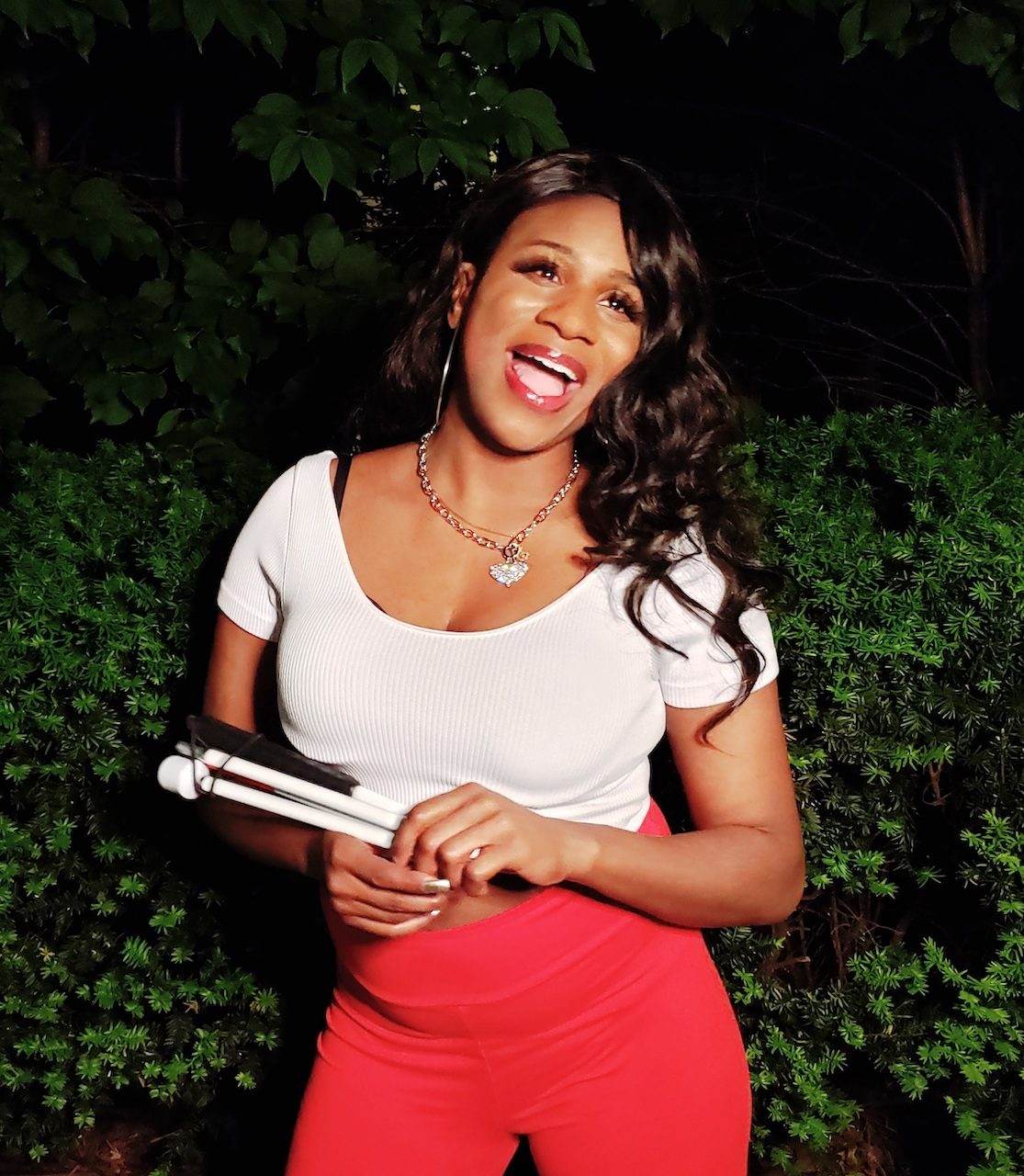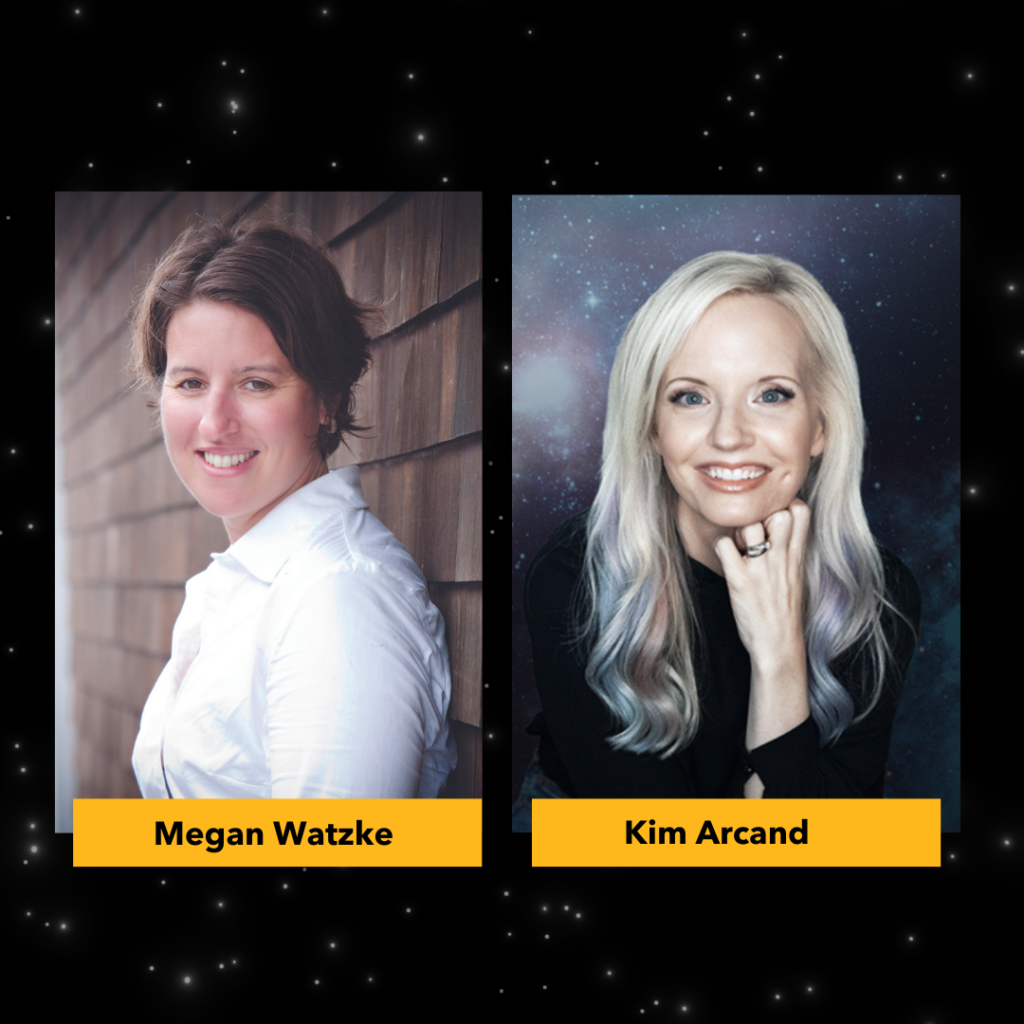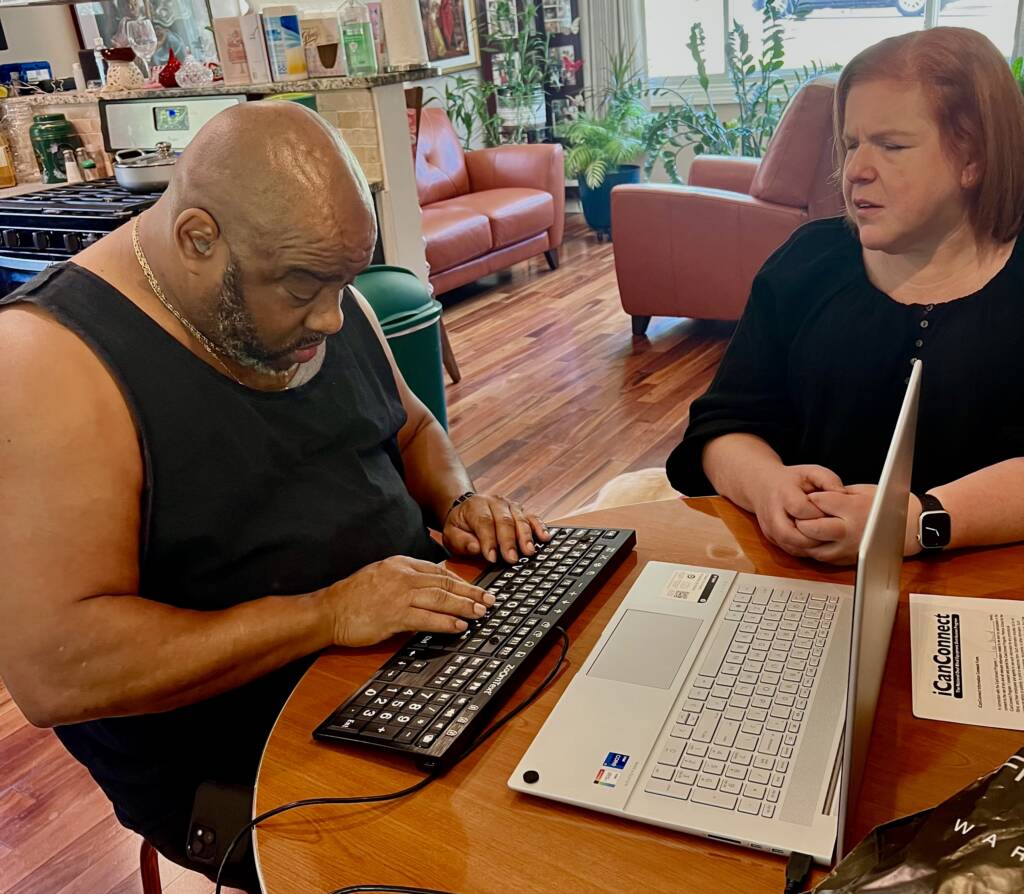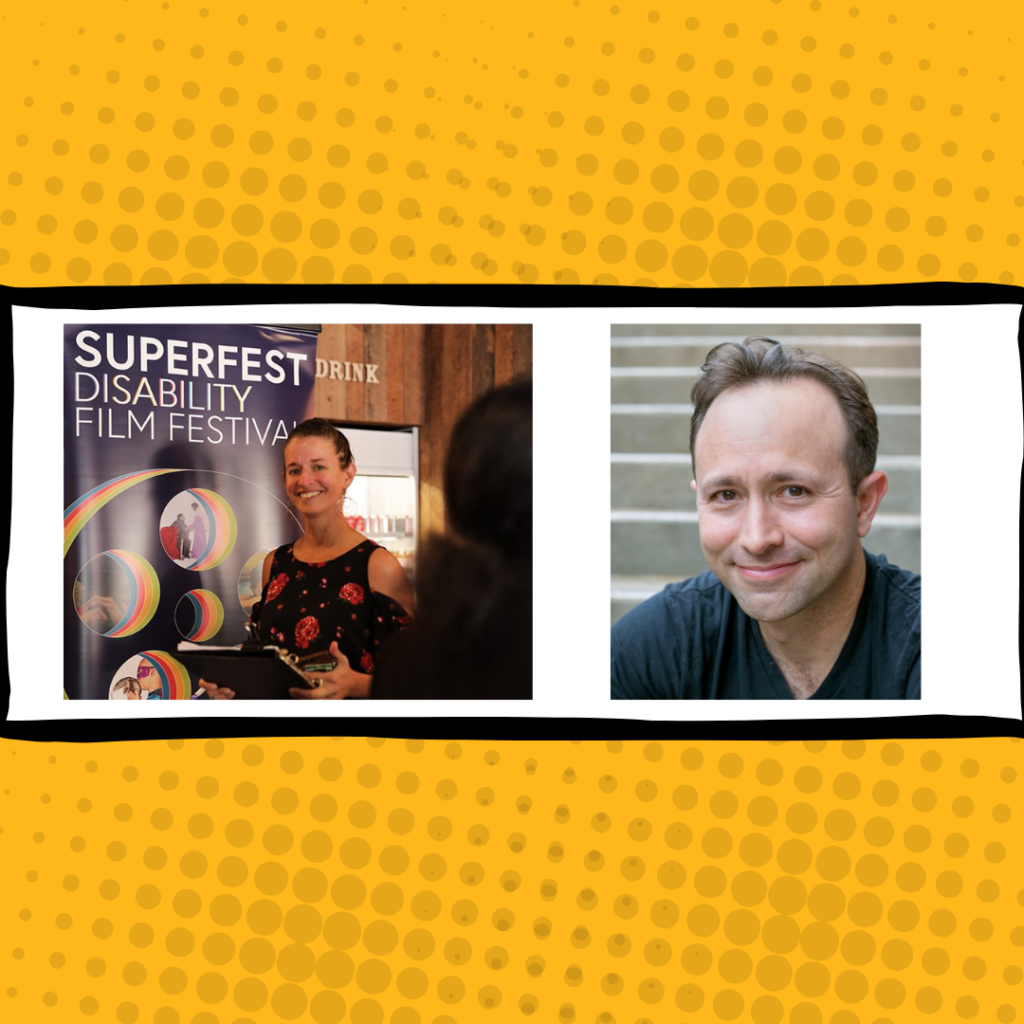You know that feeling you get after winning a video game on the hardest difficulty level, or baking the perfect brownies on your first try without instructions, or beating your frenemy in a race after you’ve given them a ten-second head-start?
That feeling is called pride, a pride sparked from determination, and a determination sparked from a healthy self-worth. Giving society all the cheat codes and a ten-second head-start and still winning – that’s the pride I get to feel every single day as a brown-skinned blind woman.
Hi, I’m Lachi. I’m a recording artist and awesome-things doer from New York City heading on a path to total blindness – and I gotta say, as my visual acuity decreases, my quality of life soars ten-fold.
When I tell people this, they look at me agape, like, “Aren’t you sad or scared?” But what they’re really saying is, “If I were going blind, I’d be sad and scared.” And frankly, that shouldn’t be the case. As you grow, your identity changes, which can include going from toddler to teenager, or sighted to blind. So this Disability Pride month, let’s bulldoze the stigmas, bury the mindsets, and foster a sense of pride: Blind Pride.
What is Blind Pride?
The 20’s is definitely the decade of reclaiming antiquated terms, and I’m reclaiming “Blind Pride.” A quick online search gives the top layman definition of “blind pride” as the act of willfully ignoring facts in order to maintain a haughty belief. I find this to be a very I’m-not-a-blind-person usage of the term “blind,” and a very I-don’t-know-what-it-means-to-be-proud-of-something usage of the term “pride.”
I prefer the definition set forth by blogger Jonathan Mosen, who eloquently spoke of his blind pride – citing a rich history of blind innovators, like Louis Braille, and the now commonplace innovations originally created for the blind, like audiobooks, scanners and voice-activation computer technology. And I join his pride in combating the “tyranny of low expectations and the disabling decisions society has chosen to make” along with blind civil rights leaders.
I’d like to add to the list, a couple of trailblazing women such as author and groundbreaking DeafBlind activist Helen Keller, and her instructor, companion and remarkable blind woman, Anne Sullivan. And no list would be complete without THE Mrs. Harriet Tubman, who pioneered the Underground Railroad, helping hundreds of slaves escape to freedom. She lost a significant amount of sight and developed ongoing seizures after being attacked by a slave owner. Ask me if that stopped her? It didn’t even slow her down.
My Blind Pride
Pride is a good thing. Anyone who thinks otherwise really oughtta start a gratitude journal. Life ain’t so bad, love. It’s okay to feel good about an accomplishment, to feel giddy when you win, to marvel at something you’ve made. Try it. It really is okay. And anyone who knocks you for it is just not there yet, and that’s okay too. They’re on their own journey.
Blind, as in the above layman sense of ignoring things around you, is also ultimately a good thing in my experience. My blindness, proverbial or not, has offered me purpose and the focus to tackle it, vision and the drive and determination to achieve it. So when people say “Lachi, you are a driven and determined person, crafty and quick study,” I owe those compliments to my blindness.
Accepting my blindness, being proud of it, enables me to love my whole, true, authentic self. And that is the definition of freedom.
Impostor Syndrome
There’s nothing wrong with having hard days. You can still be immensely proud of yourself and the things you’ve achieved and simultaneously feel that righteous anger that an inaccessible world offers. I find myself less angry that it isn’t and more angry that it CAN BE!
But Lachi, if I want a cure, does that automatically make me ashamed of my blind identity? It’s not that black and white. While I’m a proponent of loving yourself as you are, we live in a beautiful world of self-love and implants, body-positivity and body-sculpting, and there’s always freedom in choices. It’s when society tries to imply YOU should be ashamed, views YOU as damaged, instead of recognizing that you can achieve pretty much anything with the right tools, time and training, that things become a problem.
Off Beat
Because of my blindness, I’ve always been off the beaten path, and it’s one of the things I love the best about myself and most of the blind folks I know. To celebrate my journey to total blindness, I’ve begun a YouTube series, Off Beat, where I learn and do random things with pretty cool brands, cross off bucket list items like skydiving, and get deep and meta with amazing leaders in the blind and disabled community.
Folks like Molly Burke (video), Haben Girma (video), Lucy Edwards (video), the Blind Boys of Alabama (video), and Paralympian Tim Reddish (video) have already graced the series, sprinkling some mad wisdom!
Most of the folks on my internal team are blind, and nearly all of my agents and reps, all successful in their own space, have some from a disability or neurodiversity. And I’m proud of that fact. True pride is not loud. It’s not imposing. It’s an internal sense of self-worth, confidence in one’s ability, and is a healthy part of a balanced life. And while some days may require more growth than others, I choose to be proud of the part of me that is black, the part of me that is woman, and the part of me that is blind.
I choose to say it out loud, “I’m Blind and I’m Proud!”
About the Author
Lachi is a recording artist, award-winning filmmaker, actress, EDM / Dance songwriter and novelist based in New York City. Her music has been featured on TV, radio and film with mentions in the New York Times, HuffPost, NPR and Oprah Radio. As a topline vocalist, Lachi has worked projects for Sony and Warner Music among others.
Legally blind, Lachi is a diversity and disability inclusion advocate within the music / entertainment space. She keynotes on stages and panels internationally, speaking on representation, accessibility and equity.
Her YouTube series, The Off Beat, documents Lachi’s journey going from low vision to no-vision as her sight loss increases. She learns what she needs to keep up her lifestyle, knocking bucket list items, travel, and speaking with or showcasing leaders, influencers and brands in the disability, LGBTQ, non-binary and BIPOC cultures.
She previously contributed to the #MyBlindStory blog with her post, “Unafraid: How I Overcame the Ultimate Fear.”
To keep up with Lachi, follow her on Instagram, Twitter and Facebook.



